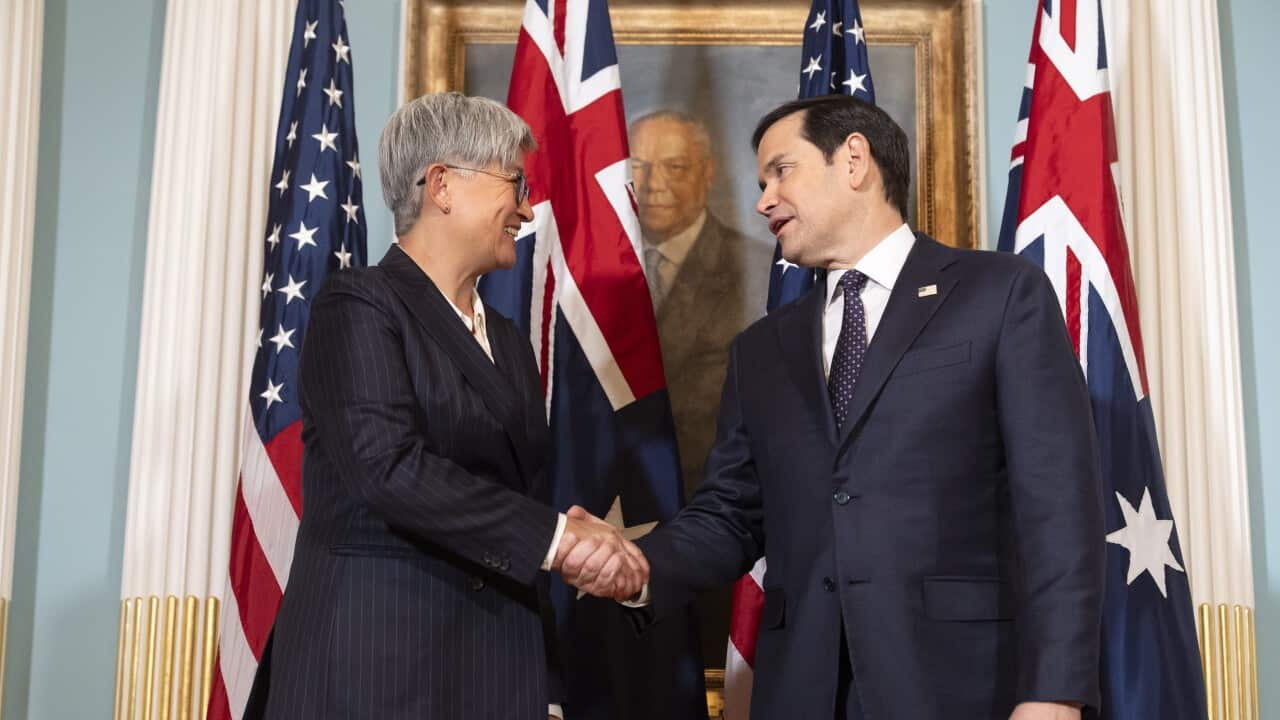United States President Donald Trump's return to the White House and subsequent tariffs on the country's three biggest trade partners have sparked global market concerns.
In three executive orders, Trump imposed 25 per cent tariffs on Mexican and most Canadian imports and an additional 10 per cent on current duties from China, starting on 4 February.
"This will be the golden age of America! Will there be some pain? Yes, maybe (and maybe not!)," Trump said on his social platform Truth Social.
Trump later announced he'd pause the tariffs on Mexico for one month, after the country agreed to reinforce its northern border with 10,000 National Guard members. Canadian Prime Minister Justin Trudeau also said tariffs had been paused for 30 days, after it similarly agreed to extra border control measures.
Both countries will use the month-long suspension to further negotiate with the US.
Unable to deny the global impact, Australia's Foreign Minister Penny Wong reiterated the country's strong relations with its closest ally.
“President Trump is implementing the agenda he said he would, so that is no surprise," she told reporters on Monday morning.
"Obviously, that's going to affect global markets, and we understand that. We also understand that we best approach this by our close engagement with the United States," Wong said.
So how will the tariffs ultimately flow through to the Australian economy?
Why is Trump imposing tariffs on China, Canada and Mexico?
Trump cited undocumented migration and the flow of fentanyl (a synthetic opioid) as key reasons behind the tariffs, stating the "crisis" needed to be "alleviated".
Buhui Qiu, professor of business and finance at the University of Sydney Business School, told SBS News the tariffs were being used as "a lever for Trump to ask those countries to enhance border security".
Qiu said there were two other key motivators: fulfilling a conventional promise to the Republican base as well as filling the US revenue coffers to help make his tax cut pledges a reality.
"Tax imports from those big trading partners, they're going to generate tens of billions of dollars in revenue to basically help fill the US budget deficit," he said.
How will Trump's tariffs impact the Australian economy?
Richard Holden, professor of economics at the University of NSW, warned that while affected indirectly, Australia could feel the impact "disturbingly quickly".
"Australia's prosperity is built in no small part on international trade. So anything that reduces that is not good news for us," he said.
"I think the impact on Australia at the moment is relatively small directly. It'll be about — do things that wind up in Australia go through supply chains that are hit by these tariffs?"
Holden said this includes anything from electronics like iPhones to point-of-sale equipment for cafes or small businesses.
In the longer term, if China becomes poorer as a nation then Australia could see a significant demand for its exports drop.
"So think everything from Wagyu beef and lobsters and red wine to university education and financial and professional services," he said.

Australia has exported $612 million worth of wine to mainland China in the six months since the tariffs were lifted, according to Wine Australia figures. Credit: AP
Qiu said this included Chinese demand for Australian minerals and market volatility, which caused Australia's dollar to fall below 61 US cents on Monday.
Does Australia have any negotiating advantages?
Holden said negotiating with Trump was about skill, not ideology, and praised Wong and US ambassador Kevin Rudd for their diplomatic efforts so far.
"I think we are doing all the right things and we've got all the right people working on that," he said.
He agreed with Wong's remarks, stating that Australia was in Trump's "good books".
"Trump has said kind of approving things about AUKUS and Australia, in terms of being a security partner," Holden said.
"But he's pretty mercurial, so I wouldn't bet on that lasting forever," he said, warning Australian politicians to tread carefully.
Qiu said the tariffs should serve as a cautionary tale, showing that close ties do not guarantee preference or exemptions from Trump's agenda.
"I feel that this close relationship with the US may not give us exemption or a special status on tariffs.
"We need to build stronger relationships with Japan, Korea, and other countries in the region ... Basically build up our own economic resilience."




